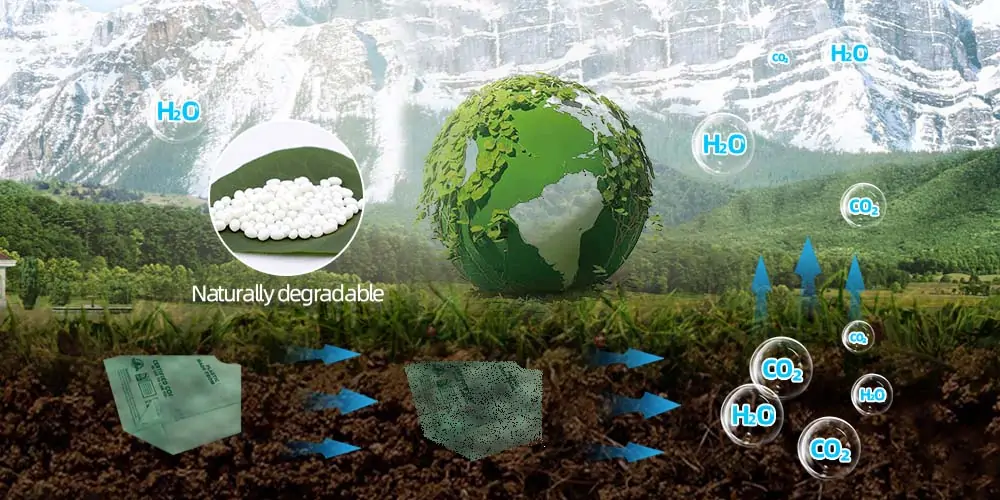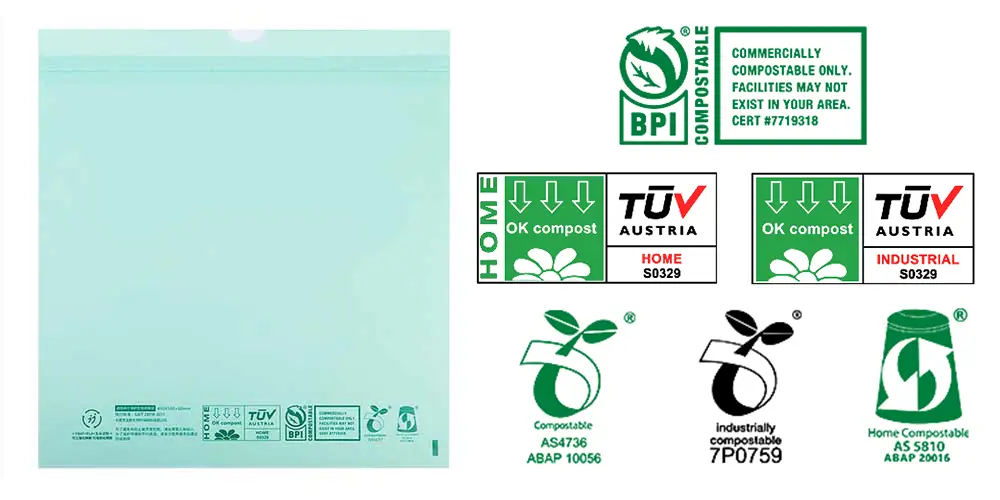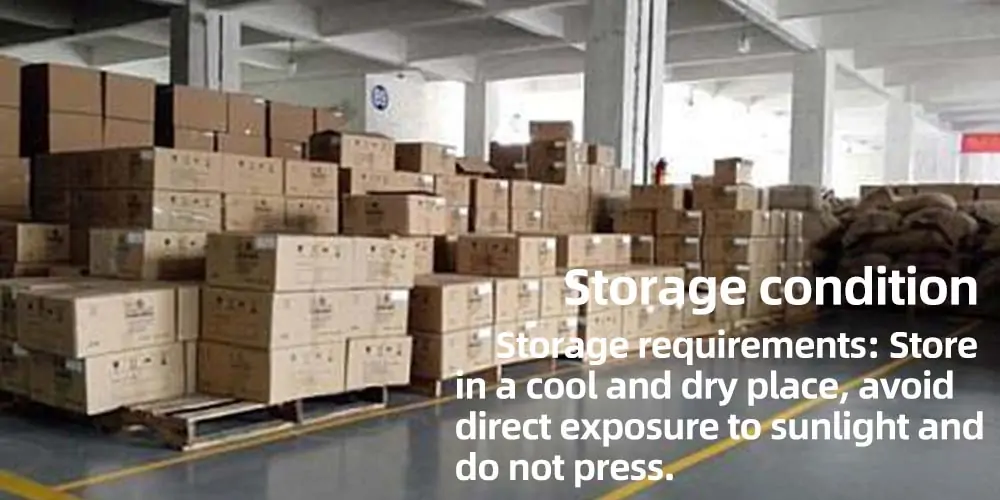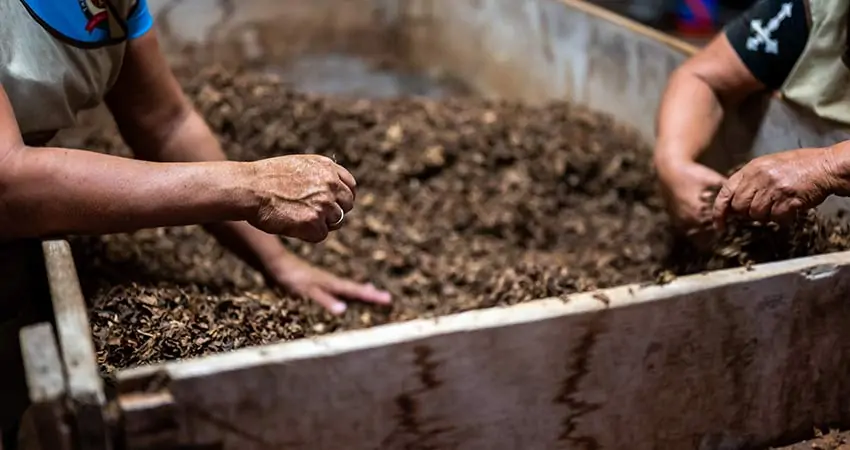
Why Choose Compostable Bags?
Disposable plastics have greatly facilitated our lives, but they have also caused great harm to the environment. About 400 million tonnes of plastic waste is produced every year, which is difficult to degrade when buried in the soil and produces harmful gases when burned, so we have to look for new environmentally friendly materials.
Compostable plastic bags can be decomposed under specific conditions and they break down into water, carbon dioxide, and small pieces less than 2 mm, which comply with the social responsibility of environmental protection.
How to Distinguish Compostable Bags
- Texture: Compostable bags feel soft and silky, whereas traditional plastic bags are much stiffer.
- Smell: Compostable bags smell like cereal while traditional plastic bags have a pungent odor or no smell.
- Appearance: Compostable bags are usually opaque with a matte finish, while traditional plastic bags are generally clear or glossy.
- Labeling: Compostable bags are usually printed with a BPI or other certification label, while plastic bags are labeled with a recycling symbol.
- Shelf Life: Due to the degradation properties of compostable bags, they generally have a shelf life of no more than one year. However, non-degradable plastic bags have a long shelf life of up to five years.


Tips on How to Store Compostable Bags
Compostable bags have a shorter shelf life than conventional plastics and require proper storage.
-
Storage Conditions: Store them in a cool, dry place away from direct sunlight and heat. Moisture can start the decomposition process prematurely.
-
Shelf Life: Most compostable bags have a shelf life of around 6-12 months. Check the manufacturer’s date to ensure you’re using bags before they start to degrade.
-
Don’t overstock: Avoid buying large quantities of bags if you won’t use them within their shelf life. Buy what you can reasonably use within a reasonable time frame.
How Will Your Compostable Bags Break Down?
This is probably the most critical factor. Understanding how to properly dispose of your compostable bags is essential.
-
Commercial Composting Facilities: Most ASTM D6400/EN 13432 certified bags are designed for industrial composting facilities. These facilities maintain the correct temperature, humidity, and microorganism levels to ensure proper decomposition.
-
Home Composting: If your bags are certified for home composting, make sure to follow proper home composting practices. This means ensuring adequate air circulation, moisture, and a good balance of “greens” and “browns” in your compost pile.
-
Landfilling: Compostable bags are not a miracle solution for landfill waste. While they will break down eventually, the anaerobic (oxygen-free) conditions in a typical landfill can slow the process.
If possible, use your compostable bags in areas where proper composting (home or industrial) is accessible. Avoid sending these bags to the landfill as much as possible. Ensure the local recycling guidelines in your area have a specific pick-up system for these bags.

